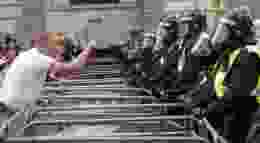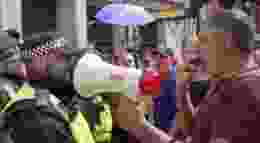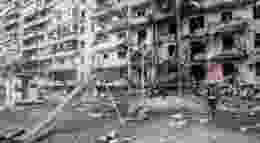
Now more than ever, bridges between religions are vital
Following the death of renowned Buddhist monk Thich Nhat Hanh earlier this year, Ken Crawford writes that his teachings on mindfulness and building bridges between religion are more important than ever.
The Buddhist monk Thich Nhat Hanh died earlier this year to little commentary in the press, certainly not commensurate with the impact of his life. The obituaries in the BBC and Guardian focus on his life events, such as his meeting with Martin Luther King, but have little to say about his writing, which may prove to be his greatest legacy.
Just as Christianity has seen wrangling over the true text of scripture and how it should be interpreted, different movements have emerged over time in Buddhism, offering different views on the Buddha's original words and how they should be interpreted. For example, when Buddhism reached the Orient from India, the Chinese and Japanese could not accept the Indian sutras at face value, rather blending them with existing religions such as Taoism to create Zen and its paradoxical koans (what is the sound of one hand clapping?).
The arrival of Buddhism in the West, something that began in earnest in the last century and is therefore a very recent phenomena, is beginning to play out in a similar way in the sense that Buddhism is not being accepted at face value, rather it is being given a Western twist. The renunciation of the material world that some Buddhist teachings encourage is not at all palatable in 21st century Europe and has largely been rejected, though the Cathars of the Medieval period would have recognised it, and the Christian monastic movement shared some of this philosophy on life.
Instead, some beautifully simple but powerful aspects of Buddhism have been picked up by the West. Chief amongst these is the notion of Mindfulness and focusing on the breath to anchor the body in time and space, to appreciate the moment in life. Thich Nhat Hanh has probably done more than any other individual to drive awareness of this concept through his many published works.
This aspect of Buddhism has been embraced by two of the pillars of Western civilisation, technology and capitalism. Apps such as Headspace are now big business and draw heavily on the notions of Mindfulness, and focusing on the breath. The rota of any gym class in the West will likely feature classes that include a meditative element in which focus on the breath is key. Quietly, subtly, with no great fanfare, aspects of Buddhism promoted by Thich Nhat Hanh have been easily digested and assimilated by the West to positive effect.
Be in no doubt of the power of this work. I have a friend who served in the RAF as a medic, extracting causalities under fire in our recent wars, someone used to difficult circumstances. He was one of the first in the UK to catch COVID-19, finding himself in a specialist hospital ward before the drugs had been developed to alleviate the symptoms. With people around him on the ward begging for the nurses to let them die, managing on one hour of sleep a night, he told me he kept his sanity by using the techniques and thought processes mentioned above. This is one of those life skills that is worth knowing and tucking away – who can say when you, the reader, may need it?
Beyond the techniques of Mindfulness, Thich Nhat Hanh is arguably the individual who has done most to build a bridge between Buddhism and Christianity. His shrine at Plum Village included both the Buddha and Christ. In his book Living Buddha, Living Christ he sets out the core concepts of Buddhism and explores the significant overlap with Christian morality. Reflecting on the Christian Holy Trinity he argues that the best approach to the Trinity is through the Holy Spirit, that is the spirit in which life is lived, rather than the ineffable Father. Christian mystics such as Abbot Joachim of Fiore were making an argument for the new age of the Holy Spirit as far back as the 11th century, not a rejection of the Father or the Son but a change of emphasis.
Thanks to Thich Nhat Hanh the bridge between Buddhism and Christianity has been firmly established. Looking ahead, the bridge we need in the West is between Christianity and Islam, something that is likely to prove more challenging given some of the text of the Quran. The Quran does however make reference to the Holy Spirit, and it may be that is the bridge we need.
The ideal scenario may be that a devout Muslim of great character comes forward, someone who will command the respect of Muslims in the West, someone who has read and understood both the Quran and the Bible, can accept and reconcile the differences, and can make the bridge in the same way Thich Nhat Hanh has done in Living Buddha, Living Christ. It would be a very positive development if aspects of Islam were drawn out that the West could benefit from but is missing in its current approach, aspects that could potentially be assimilated without a conversion to Islam, in the same way that aspects of Buddhism have been assimilated without a religious conversion.
We want to move away from a position where one faith claims it has all the answers.













